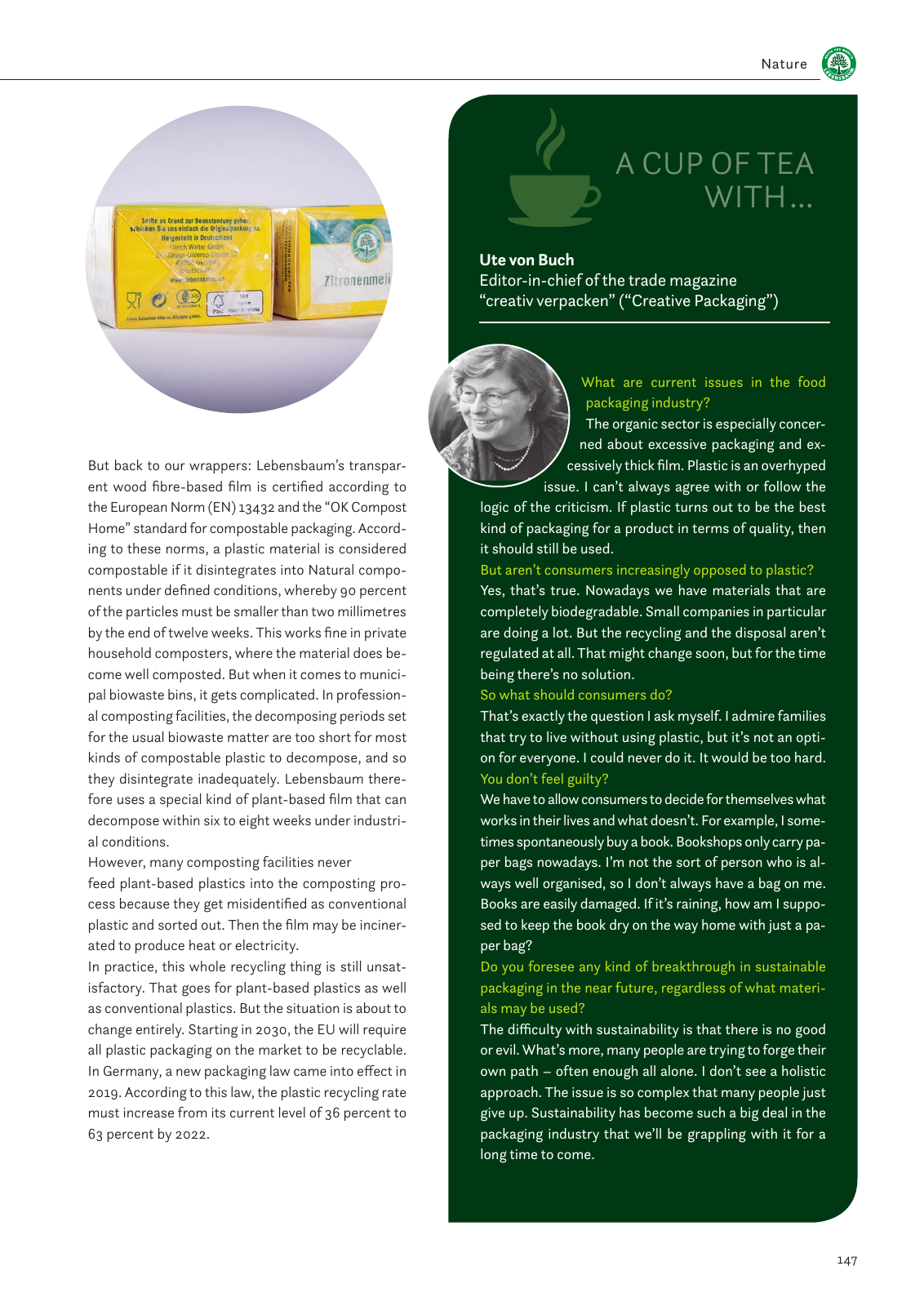147 Nature What are current issues in the food packaging industry The organic sector is especially concer ned about excessive packaging and ex cessively thick film Plastic is an overhyped issue I can t always agree with or follow the logic of the criticism If plastic turns out to be the best kind of packaging for a product in terms of quality then it should still be used But aren t consumers increasingly opposed to plastic Yes that s true Nowadays we have materials that are completely biodegradable Small companies in particular are doing a lot But the recycling and the disposal aren t regulated at all That might change soon but for the time being there s no solution So what should consumers do That s exactly the question I ask myself I admire families that try to live without using plastic but it s not an opti on for everyone I could never do it It would be too hard You don t feel guilty We have to allow consumers to decide for themselves what works in their lives and what doesn t For example I some times spontaneously buy a book Bookshops only carry pa per bags nowadays I m not the sort of person who is al ways well organised so I don t always have a bag on me Books are easily damaged If it s raining how am I suppo sed to keep the book dry on the way home with just a pa per bag Do you foresee any kind of breakthrough in sustainable packaging in the near future regardless of what materi als may be used The difficulty with sustainability is that there is no good or evil What s more many people are trying to forge their own path often enough all alone I don t see a holistic approach The issue is so complex that many people just give up Sustainability has become such a big deal in the packaging industry that we ll be grappling with it for a long time to come Ute von Buch Editor in chief of the trade magazine creativ verpacken Creative Packaging A CUP OF TEA WITH But back to our wrappers Lebensbaum s transpar ent wood fibre based film is certified according to the European Norm EN 13432 and the OK Compost Home standard for compostable packaging Accord ing to these norms a plastic material is considered compostable if it disintegrates into Natural compo nents under defined conditions whereby 90 percent of the particles must be smaller than two millimetres by the end of twelve weeks This works fine in private household composters where the material does be come well composted But when it comes to munici pal biowaste bins it gets complicated In profession al composting facilities the decomposing periods set for the usual biowaste matter are too short for most kinds of compostable plastic to decompose and so they disintegrate inadequately Lebensbaum there fore uses a special kind of plant based film that can decompose within six to eight weeks under industri al conditions However many composting facilities never feed plant based plastics into the composting pro cess because they get misidentified as conventional plastic and sorted out Then the film may be inciner ated to produce heat or electricity In practice this whole recycling thing is still unsat isfactory That goes for plant based plastics as well as conventional plastics But the situation is about to change entirely Starting in 2030 the EU will require all plastic packaging on the market to be recyclable In Germany a new packaging law came into effect in 2019 According to this law the plastic recycling rate must increase from its current level of 36 percent to 63 percent by 2022

Hinweis: Dies ist eine maschinenlesbare No-Flash Ansicht.
Klicken Sie hier um zur Online-Version zu gelangen.
Klicken Sie hier um zur Online-Version zu gelangen.